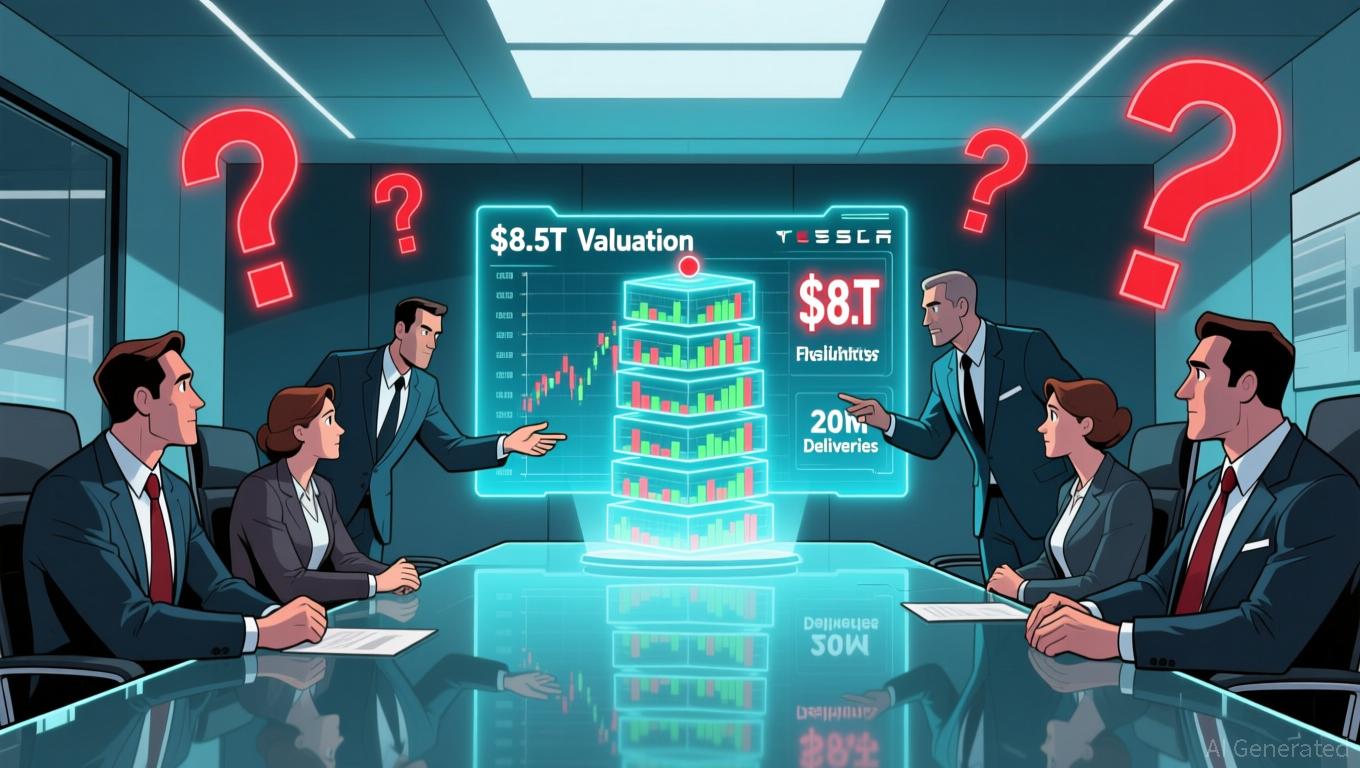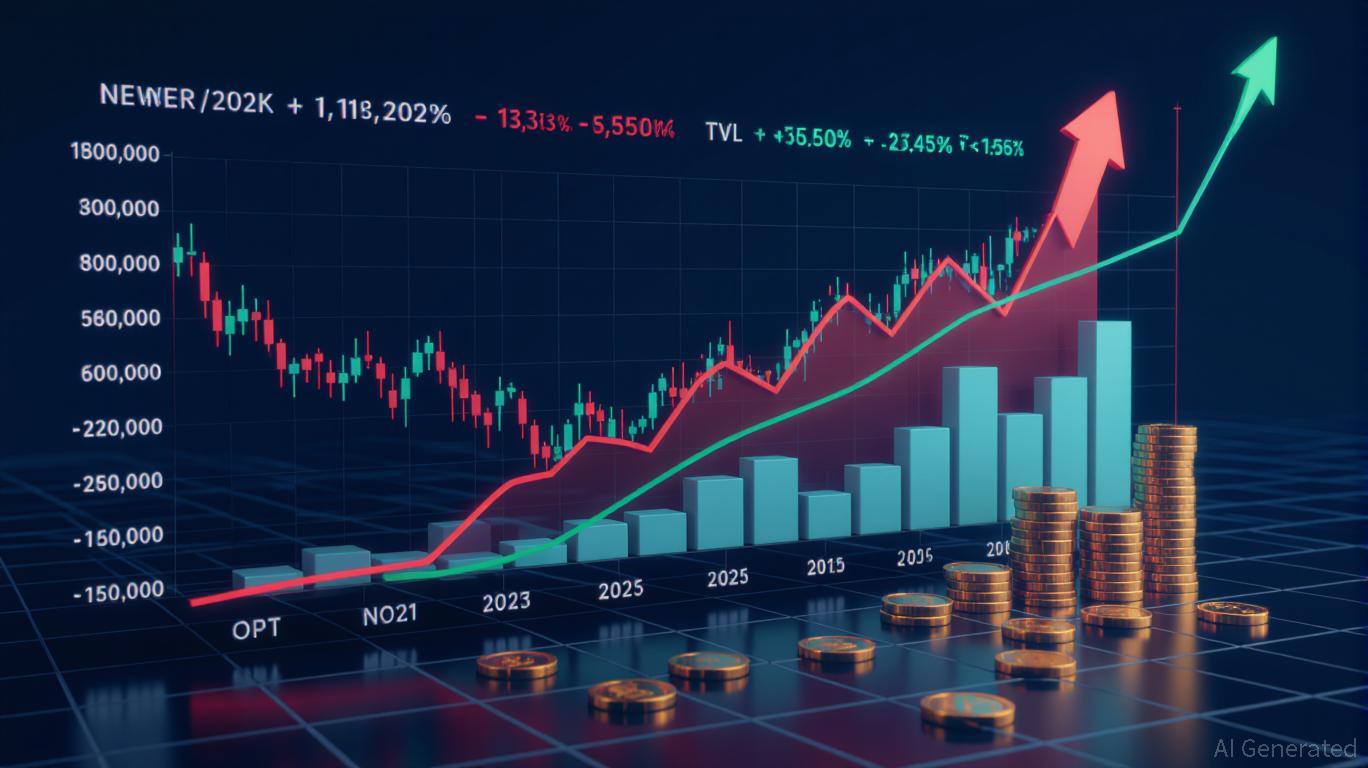Tesla’s $1 Trillion Musk Deal: Strategic Move to Keep CEO or Example of Excessive Corporate Power?
- Tesla shareholders approved a $1 trillion compensation package for Elon Musk, tied to aggressive targets like $8.5 trillion valuation and 20 million vehicle deliveries. - Critics call the package excessive, while Tesla defends it as critical to retain Musk amid his SpaceX, xAI, and Trump administration commitments. - The Texas-based approval bypasses Delaware's strict governance rules, sparking debates over "race to the bottom" in corporate accountability. - Skeptics question feasibility of targets, with
At Tesla's annual meeting in Austin, Texas, shareholders gave their approval to a historic $1 trillion pay package for CEO Elon Musk, with more than three-quarters of votes in favor, as reported by a
This approval signals a significant change in how corporations are governed. After Musk's 2018 compensation plan was twice struck down by Delaware courts, Tesla moved its incorporation to Texas, where business laws are more flexible, the Los Angeles Times reported. This shift allowed Tesla's board to avoid Delaware's tough oversight on shareholder disputes, sparking concerns about a "race to the bottom" among states with looser corporate regulations, as noted by
Musk's latest pay plan is designed to reward long-term results, requiring him to hit a series of performance milestones to receive shares, according to the MarketWatch article.

This approval also brings attention to wider legal and regulatory issues. Delaware's Supreme Court is preparing to review a statute that redefined "controlling stockholder," a decision that could reshape corporate governance across the country, according to a
Musk, meanwhile, highlighted the compensation plan's importance for Tesla's AI and robotics goals. During the shareholder meeting, he said the package would help the company "eliminate poverty by expanding human services" and make Optimus humanoid robots the next revolutionary technology, as reported by the Los Angeles Times. However, his involvement in politics—including a brief role in the Trump administration—has raised concerns about his focus, with governance experts like Nell Minow calling him a "part-time CEO," according to a
This decision highlights a growing pattern: companies are increasingly using state laws to justify unprecedented executive pay. As Tesla's move sets a precedent, it prompts important questions about oversight and the direction of corporate governance in a patchwork legal system, The Guardian observed.
---
Disclaimer: The content of this article solely reflects the author's opinion and does not represent the platform in any capacity. This article is not intended to serve as a reference for making investment decisions.
You may also like
Meta has been exposed for making huge profits through a massive number of fraudulent advertisements.
The Surge in MMT Token Value: A Driving Force in DeFi or Just a Temporary FOMO Hype?
- MMT token surged 1330% due to high-profile exchange listings and liquidity incentives, sparking debates over sustainability. - Proponents highlight Momentum's DeFi roadmap and institutional infrastructure as blockchain innovation catalysts, while skeptics warn of speculative overreach. - Phase One delivered $12B trading volume and $265M TVL, but recent price volatility ($4.4 to $2.06) and $109M futures liquidations signal market fragility. - On-chain metrics remain opaque, with a 7.2 turnover ratio indic

Astar 2.0’s Tactical Rollout and Its Impact on the Market
- Astar Network launched Astar 2.0 on September 13, 2023, aiming to unify Ethereum and Substrate blockchains via Astar Link. - The platform emphasizes interoperability, revised tokenomics, and enterprise partnerships to challenge L2 leaders like Arbitrum and Optimism . - With 150,000 TPS and cross-chain integrations, Astar 2.0 targets scalable DeFi adoption but faces TVL declines and competition from ZK-rollups. - Enterprise collaborations with Sony and Toyota highlight real-world use cases, though market
